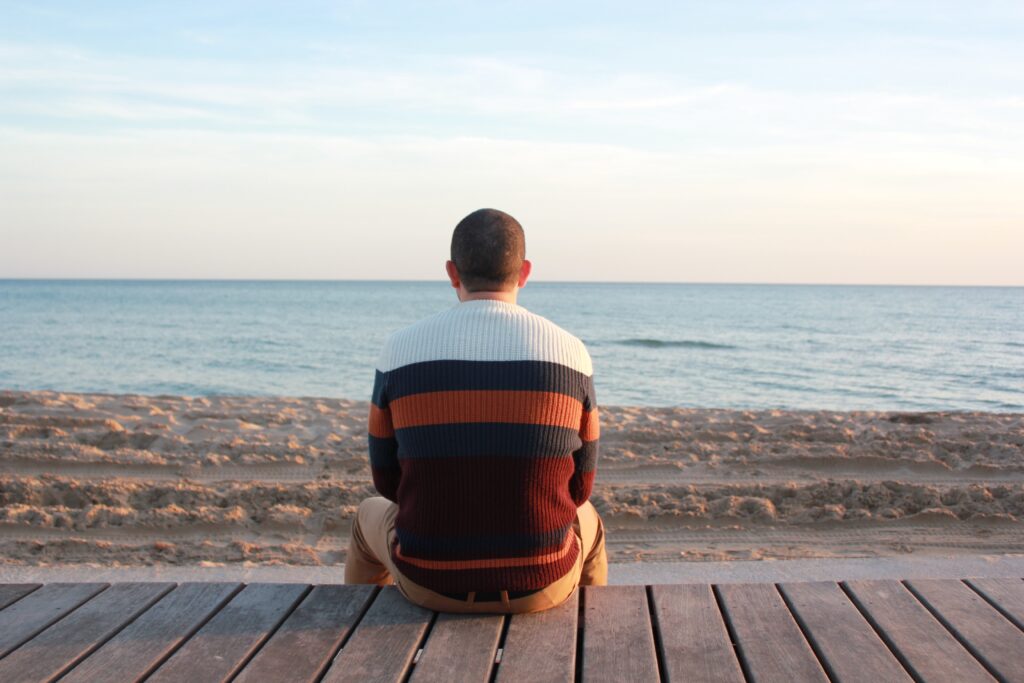
There has been a very welcome increasing focus on men’s mental health. Rio Ferdinand, Professor Green, Prince William, Alistair Campbell, David Harewood have all featured in recent documentaries, talking about the mental health struggles they’ve gone through. A sense of urgency has come from the alarming rates of male suicide in particular. The repeated message is if you’re struggling, talk to someone.
This is a simple message, but it’s one many men find challenging. How often do we hear men saying things like “I didn’t talk to anyone because I didn’t want to appear weak” or “I just need to Man Up”.
Why focus on men’s mental health?
Data sets collected through the NHS IAPT (Improving Access to Psychological Therapies) programme shows nearly two women access mental health support for every man who does. Further studies show:
- Men account for over 75% of all suicides, which is the leading cause of death for men under 35.
- Men score significantly lower than women on the UK’s national well-being survey.
- Nearly three times more men have substance misuse issues than women.
So there’s evidence there is a need for more support, and the IAPT data sets also show therapy is just as effective for men as for women. But too many men aren’t accessing the help that could make a real, potentially life-saving difference. So why is there this difference?
Boy’s don’t cry
I believe a big reason comes down to a childhood message that far too many men received. That “boys don’t cry”? We may have been told that by our parents. Or heard it from childhood friends or through books, films, TV etc. When I was little, being accused of “crying like a girl” was meant to be shaming, without anyone explaining why. But boys would still experience losses, rejection, disappointments which would fit with sadness and crying. So what often happens is boys learn to hide, and eventually repress those feelings. And try to avoid any situation that might bring them out again. And understandably, talking to someone about your life and experiences would risk doing just that. And so it can feel safest to just keep quiet. With sometimes tragic results.
How can we change this way of thinking?
The temptation is simply to say no, men don’t need to be strong and hide their emotions. It may be a clear message, and I have seen campaigns aimed at challenging that belief. But we’re talking about many men’s deeply ingrained sense of identity. It’s a huge task, probably needing society as a whole to change.
Instead, I would challenge the belief that sadness, and even crying, is a sign of weakness. And how that belief that emotions must stay hidden involves a misunderstanding of what emotions are for.
All emotions are equal
I find it helpful to group emotions into four main categories: happiness, anger, sadness and fear. As humans, we evolved to experience all of these, in all their variations of intensity. They are equally important, and all provide crucial information about our needs and wants:
- Happiness: Feeling happy tells us our needs and wants are being met, so we can take steps to make sure this continues.
- Anger: Feeling angry tells us our needs and wants are not being met, so we can take steps to get those needs and wants met.
- Sadness: Feeling sad tells us our needs and wants in the past weren’t met, or something we need or want has been lost. We can then take steps to come to terms with the past and, where possible, try to get those needs and wants met in the present.
- Fear: Feeling afraid tells us our needs and wants are under threat of being lost, so we can take steps to keep them safe.
There are many ways this information system can go wrong, so this crucial information is lost to us. This is an important area counselling can help. Connecting with our authentic emotions can help us to make healthier choices in our lives.
Emotions are not a sign of weakness
Hopefully, by understanding why we experience emotions, it will show why it doesn’t make sense to see sadness, or any other emotion, as a sign of weakness. It’s simply our bodies giving us information. It would be like saying feeling hungry, or thirsty, is a sign of weakness.
What we choose to do with that information is up to us. There can be both helpful and damaging ways of expressing our emotions depending on the situation. Old patterns might need to be looked at and new decisions made. There may well be no perfect choices, it might take real strength and courage to deal with some situations. But being open to all the information we have available, gives us the best possible chance of success.
Conclusion
The message that if you’re struggling, talk to someone, is a simple one. And the reasons why so many men still don’t do that are complex. But I hope that challenging some of the myths around what it means to be a man, the "boys don't cry" message, and seeing what emotions are for, might make a difference. All emotions are equal, have a purpose, and none are a sign of weakness. Life can be challenging for everyone, and nobody should feel they need to
suffer in silence.